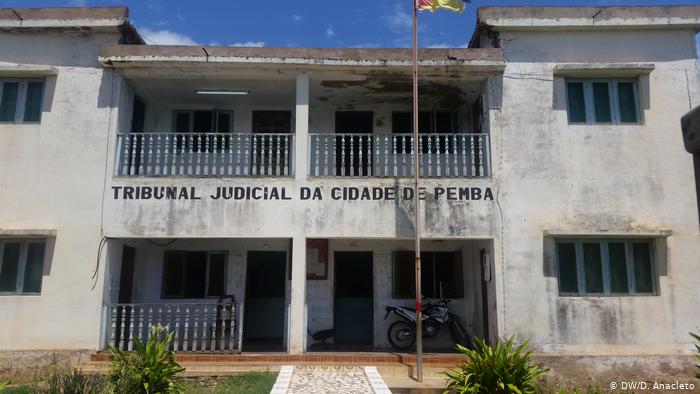Mozambican alleged kidnapper shot dead in South Africa - AIM report
Mozambique: Police officers convicted in court over assault on photojournalist

DW
Judicial Court of the city of Pemba, in Cabo Delgado, has delivered its verdict in the matter of the beating and detention of Mozambican photojournalist, Estácio Valói, during the exercise of his duties in April 2017.
In a ruling handed down on Wednesday, the Judicial Court of the city of Pemba in the Mozambican province of Cabo Delgado sentenced the police officers Aires Aureliano Tiquelia and Augusto Castigo José Guta to five months’ imprisonment and the payment of 50,000 meticais (about 700 Euros) in compensation.
According to Judge Felicidade Fremo, who handled the case, Vali was intercepted by police officers on April 7, 2017, as he was photographing for the Mozambican Women’s Day celebrations. At the time, the agents demanded Valoi to identify himself. During the discussion and without any consensus, the co-defendant Augusto Guta and another unidentified agent led the offended in a police car to the police station in the city of Pemba.
Aprehended material
The co-defendant, Aires Tiquelia, who at the time was Commander of the police station, ordered that Valoi be handcuffed and placed in a cell with other detainees. Even after presenting his credentials and handing over his camera and memory card, Valoi remained in detention for about two hours.
The court judged that the defendants committed violence in the exercise of their public functions, punishable under article 498 of the Criminal Code with imprisonment from one to six months.
The court acquitted Municipal Police commander Cornelio Albino Tuvane, as not being proven to have been involved in the case.
Judge Felicidade Fremo announced that the court “unanimously, in the name of the law and the Republic of Mozambique, decided to acquit the defendant Cornélio Albino, on the understanding that he did not commit the crime that he is accused of. On the other hand, the defendants Aires Aureliano Tiquelia and Augusto Castigo José Guta are sentenced to the same penalty of five months’ imprisonment”.
Penalty includes compensation
The defendants must also compensate Estacio Valoi in the amount of 50,000 meticais (about 700 Euros).
“According to the legal conjugations of articles 102, number A, point A, 114, number one and 115, all of the penal code, the execution of the sentence is suspended for a period of two years, considering the fact that these co-defendants are primary,” Judge Felicidade Fremo added.
Dionísio Pedro, the photojournalist’s lawyer, found the sentence fair and a good way to discourage the excesses practiced by police officers in the face of journalistic activity.
Excess on the part of the agents
The magistrate found excess on the part of the agents in preventing the exercise of journalistic activity. He warned that “in order to prohibit something from being done, it is necessary that there be legislation. Then, if it is forbidden to take pictures, it is necessary that there be signage of this on site. If the police or any agent tries to repress the journalistic function, it must be based on some law”.
Opinions among Cabo Delgado journalists is divided, some of those who spoke to DW Africa considering the punishment dole out to the offenders too light.
Radio Sem Fronteira journalist Milda Quaria said: “People usually have no idea of the infraction they are committing unless they feel the consequences of their mistake.” he said. “We want to go and get pictures of facts, images of what is happening, because we want to inform Mozambique about what is happening.”
Hizidine Achá, from private TV channel STV, said he was satisfied with the verdict and hoped that the prosecutor’s office would oversee compliance with this decision because, in his opinion, the police could face some risks, including acts of revenge.
“The ban on taking photos and collecting information in public places has become a habit, especially since the armed attacks on the Cabo Delgado region began. So I hope the police will know where they can actually ban activity, so that journalists can do their work safely,” Achá said.
Action against the military
Valói was also in military custody between December 16 and 18, 2018, while reporting from Palma and Mocímboa da Praia, and his equipment and mobile phone seized.
In an interview with DW at the time, he said: “We are going to file a lawsuit against these military personnel, because we believe we live in a state of law. Far greater than freedom of the press is freedom of expression – and the treatment I received amounted to a death threat.”












Leave a Reply
Be the First to Comment!
You must be logged in to post a comment.
You must be logged in to post a comment.